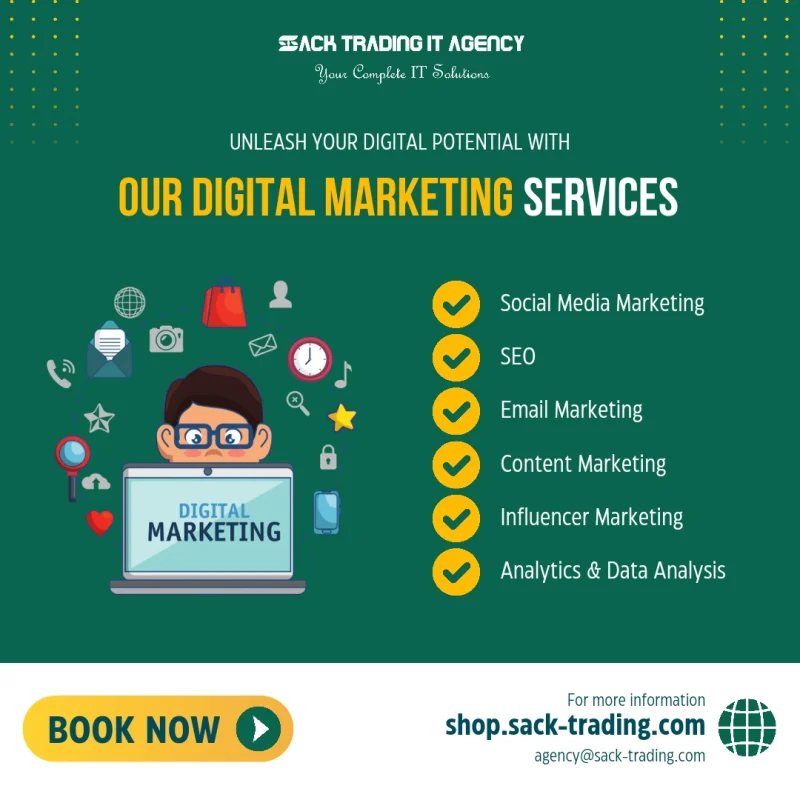Digital Marketing
Introduction:
Digital marketing is a multifaceted and dynamic field that encompasses various online strategies and tactics to promote products, services, or brands to a global audience. It leverages the power of the internet and digital channels to reach and engage potential customers, build brand awareness, drive website traffic, and ultimately, boost sales and revenue. Here’s a detailed description of digital marketing:
Digital marketing encompasses a wide range of online marketing activities designed to connect businesses with their target audience in the digital realm. This includes:
Search Engine Optimization (SEO): SEO involves optimizing a website’s content and structure to improve its visibility on search engines like Google. The goal is to increase organic (non-paid) traffic and improve search engine rankings.
Content Marketing: Content marketing focuses on creating and sharing valuable, relevant, and consistent content to attract and engage a target audience. This content can include blog posts, articles, videos, infographics, and more.

Social Media Marketing: This involves leveraging various social media platforms like Facebook, Instagram, Twitter, and LinkedIn to connect with the target audience, build a brand presence, and engage in two-way communication.
Email Marketing: Email marketing uses email campaigns to nurture leads, inform customers about products or services, and maintain customer relationships.
Pay-Per-Click (PPC) Advertising: PPC advertising, such as Google Ads, allows businesses to display ads in search engine results and on other websites. Advertisers pay a fee each time their ad is clicked.
Content Advertising: Content advertising involves creating and promoting informative or entertaining content that indirectly promotes a brand or product. Native advertising and sponsored content fall into this category.
Affiliate Marketing: In affiliate marketing, businesses partner with other individuals or companies (affiliates) who promote their products or services and earn a commission on sales generated through their efforts.
Influencer Marketing: This strategy involves partnering with influential individuals on social media or other online platforms to promote a brand or product to their followers.
Online Public Relations: Online PR focuses on managing a brand’s online reputation, handling online crisis situations, and building positive relationships with online communities.
Analytics and Data Analysis: Data-driven decision-making is a critical component of digital marketing. Marketers use various tools to analyze website traffic, user behavior, and the performance of marketing campaigns to make informed choices.
Mobile Marketing: As mobile device usage continues to rise, mobile marketing strategies target users on smartphones and tablets through mobile apps, SMS marketing, and responsive website design. Video Marketing: Video content is becoming increasingly popular. Video marketing involves creating and sharing video content to engage and inform the audience.
Digital marketing is an ever-evolving field that requires staying up to date with the latest trends and technologies. Marketers must adapt their strategies to the changing online landscape to effectively reach and engage their target audience, drive conversions, and achieve their business goals.
